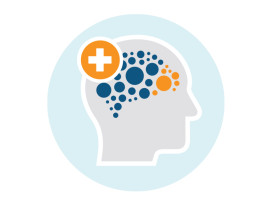CHIA RELEASES FIRST-EVER DASHBOARD TO MEASURE THE PERFORMANCE OF BEHAVIORAL HEALTH CARE IN MASSACHUSETTS

DATE: September 26, 2024
CHIA has released its inaugural dashboard of metrics to monitor the performance of behavioral health care in the Commonwealth.
Behavioral health encompasses services and treatment for both mental health and substance use disorders (SUD) and are vital services that can meaningfully shape patient outcomes. Measuring and tracking indicators of behavioral health care provides an essential fact base that enables data-driven policymaking and delivery system reforms.
CHIA’s Behavioral Health Dashboard is intended to provide an overview of the current state of behavioral health care in Massachusetts, in addition to providing baseline metrics for comparison going forward.
The dashboard measures the state of behavioral health along five domains:
- Access—metrics focused on access to behavioral health care
- Finance—metrics focused on spending for behavioral health services
- Utilization—metrics focused on the use of behavioral health care services
- Quality—metrics focused on the quality of behavioral health care services
- Equity—metrics focused on assessing inequities in behavioral health care
As demonstrated by metrics from this year’s dashboard, while some rates of behavioral health services and follow-up care have increased, difficulties and disparities in accessing care highlight gaps in the Massachusetts behavioral health system. An interactive Tableau dashboard is also available and includes additional data stratifications for exploration.
To see the dashboard website and key findings from this year’s metrics, go to https://www.chiamass.gov/behavioral-health-in-massachusetts.
CHIA also recently published a report measuring primary care and behavioral health spending for calendar years 2021 and 2022, as part of its effort to monitor spending for Massachusetts residents in these areas of care.
